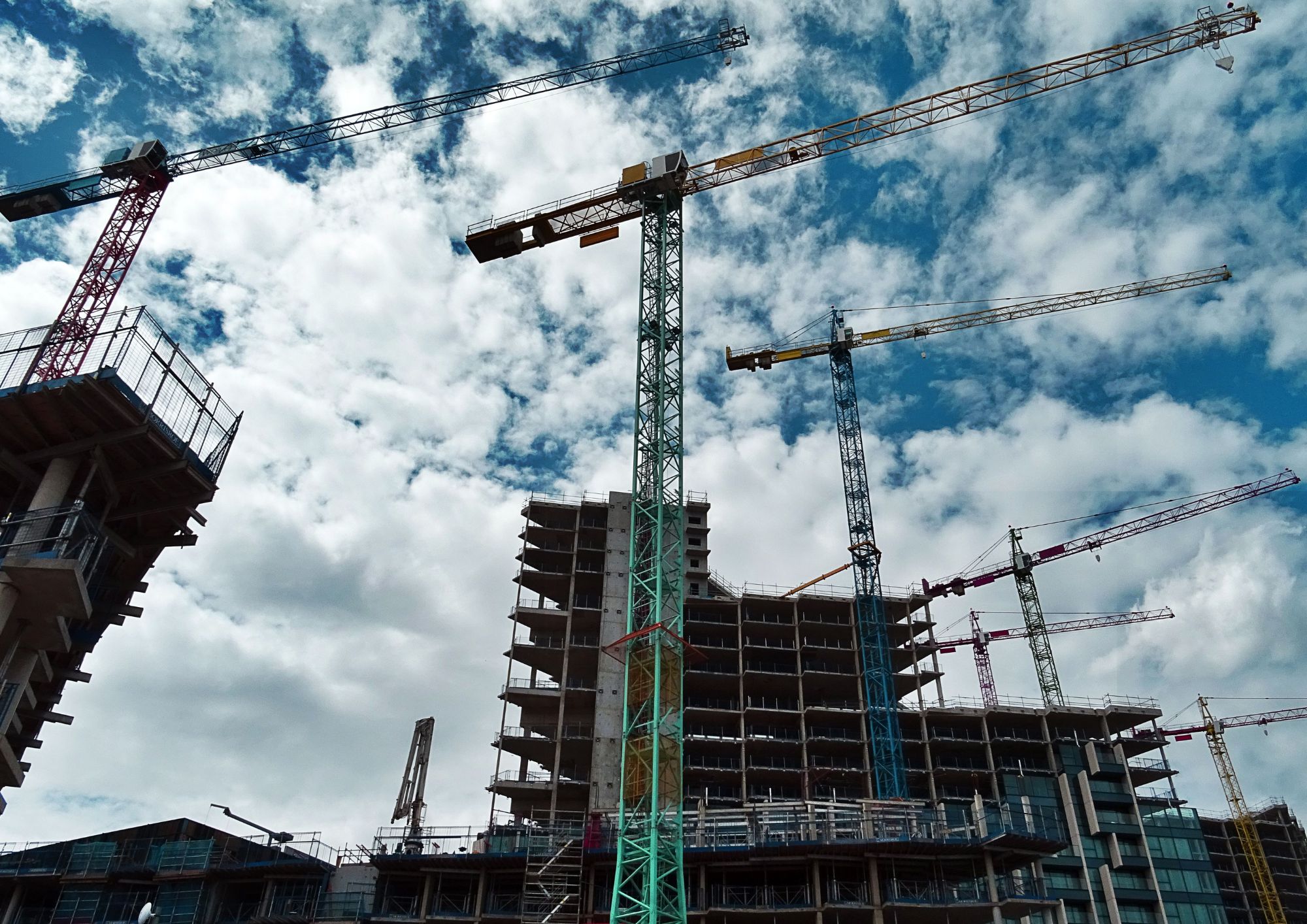Spending on Infrastructure fell back 39% in August, whilst education sees a boost following RAAC
[edit] Construction industry headlines for august
- Infrastructure spending fell back 39% in August and saw a 55% fall in planning approvals
- Construction spending related to schools provides some good news following RAAC crisis
- Extreme weakness continues in the residential sector in planning applications
- Prospects remain muted for second half of 2022
[edit] Infrastructure and education
Spending on UK infrastructure fell back 39% to £1.2bn in August after July’s £2.0bn, although contract awards overall remained relatively healthy for the second month in a row with £6.3bn according to Barbour ABI’s latest analysis. And the bad news for infrastructure looks set to continue with a commensurate 55% drop in approvals in August.
Meanwhile, the education sector saw some positives in the wake of recent chaos around RAAC repairs.
Barbour ABI Chief Economist Tom Hall commented: “All eyes are on the education sector following the scandal around crumbling concrete in schools. It may, therefore, come as a small positive for those affected that spending in the form of new project contracts increased 34% to £700m in August, driven largely by secondary school redevelopments. Approvals were also positive, with projects worth £500m moving through the pipeline and £400m of project applications in July.”
August also saw a continuation of higher spending levels for the commercial sector with £1.0bn in contracts awarded thanks to several large mixed-use projects in London and a positive month for healthcare with £300m.
Hotel and leisure appeared to be slowly returning to normal levels post-Covid but remains dependent on small numbers of larger projects.
[edit] Planning pipeline remains mixed
Planning approvals continued a mini-resurgence with £8.9bn worth of projects in August. This was the third month of higher activity after a slump in the new financial year. The recovery has been driven by recoveries in the residential, infrastructure and industrial sectors, and a strong Q3 result is all but certain.
However, there was still no good news for planning applications, with continuing low activity since the beginning of the year pointing to a challenging future for the industry as the pipeline dries out. In particular, extreme weakness in the residential sector remained clear, with just £3.3bn of new applications in the latest monthly figures.
“In the wider construction environment, confirmed activity remains very uncertain, and prospects remain muted for the second half of 2023.” Concluded Hall.
--Barbour ABI 16:04, 08 Sep 2023 (BST)
Featured articles and news
Inspiring the next generation to fulfil an electrified future
Technical Manager at ECA on the importance of engagement between industry and education.
Repairing historic stone and slate roofs
The need for a code of practice and technical advice note.
Environmental compliance; a checklist for 2026
Legislative changes, policy shifts, phased rollouts, and compliance updates to be aware of.
UKCW London to tackle sector’s most pressing issues
AI and skills development, ecology and the environment, policy and planning and more.
Managing building safety risks
Across an existing residential portfolio; a client's perspective.
ECA support for Gate Safe’s Safe School Gates Campaign.
Core construction skills explained
Preparing for a career in construction.
Retrofitting for resilience with the Leicester Resilience Hub
Community-serving facilities, enhanced as support and essential services for climate-related disruptions.
Some of the articles relating to water, here to browse. Any missing?
Recognisable Gothic characters, designed to dramatically spout water away from buildings.
A case study and a warning to would-be developers
Creating four dwellings... after half a century of doing this job, why, oh why, is it so difficult?
Reform of the fire engineering profession
Fire Engineers Advisory Panel: Authoritative Statement, reactions and next steps.
Restoration and renewal of the Palace of Westminster
A complex project of cultural significance from full decant to EMI, opportunities and a potential a way forward.
Apprenticeships and the responsibility we share
Perspectives from the CIOB President as National Apprentice Week comes to a close.
The first line of defence against rain, wind and snow.
Building Safety recap January, 2026
What we missed at the end of last year, and at the start of this.























